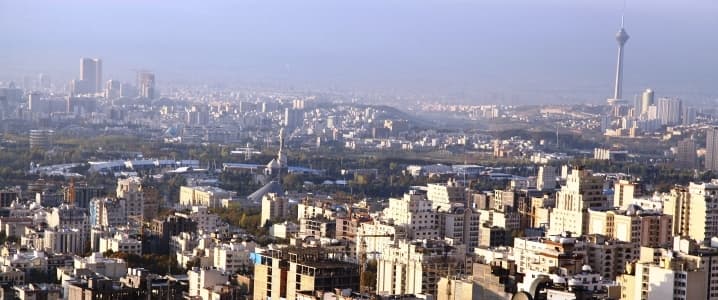Iran is gearing up for the May 19 presidential election, a critical vote that could reverberate around the world, affecting not just Iran, but also its relationship with the West, and ultimately, crude oil prices.
Incumbent President Hassan Rouhani won in 2013 on a platform of moderation and promoting dialogue with the West. Ultimately, that controversial gamble paid off, with the signing of the 2015 nuclear deal with the P5+1 nations (the five permanent members of the UN Security Council – China, France, Russia, the United Kingdom, the U.S. – plus Germany). The deal put restrictions on Iran’s nuclear program in exchange for a lifting of sanctions.
Crucially, the deal led to a thaw in relations between Iran and the international community, and it also led to a revival in Iran’s oil industry. Iran had more than 40 million barrels of oil stored in tankers in the Persian Gulf, which were blocked from export. After the deal, Iran slowly whittled away at that stockpile, allowing it to boost exports throughout 2016. Iran also began the process of courting international oil companies for new investment in some very attractive oil and gas fields.
However, the nuclear deal has never looked more fragile than it does right now. U.S. President Donald Trump has repeatedly criticized it, previously calling it “the worst deal ever negotiated.” In April, U.S. Secretary of State Rex Tillerson said that Iran is so-far in compliance with the deal, but that the U.S. would still conduct a review to see whether or not it should withdraw from the accord over Iran’s ongoing support of terrorism. Related: Iraq Agrees With Deal Extension, But Boosts Oil Exports To Record Levels
So, on the one hand, the U.S. is not sure it wants the deal to survive, while in Tehran the deal is also looking shaky. President Rouhani is facing growing competition from hardliners, particularly from conservative cleric Ibrahim Raisi, who appears to be the leading opposition candidate ahead of Friday’s vote. Raisi has not said that Iran would back out of the deal if elected, but confrontation with the U.S. would be much more likely if he prevailed, ultimately putting the nuclear deal in danger.
"Raisi would likely support the provocative military and regional policies that are already imperiling the nuclear agreement and are leading to increasing calls in Washington to reinstate extra-territorial sanctions," Helima Croft, global head of commodity strategy at RBC Capital Markets, wrote in a research note on Monday. Even if Iran does not unilaterally withdraw from the deal, heightened tension with the U.S. could provoke the tempestuous U.S. President to scrap the accord. The election is set for May 19, but the top two candidates will head to a runoff a week later if nobody receives 50 percent of the vote.
Any fallout from the nuclear deal would have knock-on effects on the crude oil market. If the deal is thrown away, geopolitical tensions between the U.S. and Iran will rise. The threat of new U.S. sanctions would then be very real, and new restrictions on Iran could hamper oil production. "We reiterate our call that Iran remains one of the most underappreciated political risks in the oil market. Moreover, we contend that the real risk is not of additional Iranian barrels coming online, but rather of a drop-off due to geopolitical developments," RBC's Helima Croft concluded. Related: Russia Reemerges As China’s Top Crude Supplier
The lifting of sanctions has been a boon for Iran, who ramped up oil production from 2.8 million barrels per day in 2015 to 3.76 mb/d as of April 2017. But the low-hanging fruit for Iran has largely been plucked. Going forward, more production gains will likely need to come from new projects and new investment, probably requiring the help of international oil companies. Iran hopes to ramp up production to 5 mb/d by 2021.
U.S. oil companies like Exxon and Chevron are still barred from Iran because of lingering sanctions from the U.S. Treasury Department. But other majors such as Royal Dutch Shell and French oil giant Total inked some preliminary agreements with Iran at the end of 2016. Shell is looking at evaluating oil fields along Iran’s border with Iraq while Total has a non-binding agreement to develop a natural gas field.
But those projects, and Iran’s future oil production target, will remain elusive if Iran’s conflict with the U.S. flares up again, which will surely deter western oil firms from jumping back into the Persian Gulf.
ADVERTISEMENT
By Nick Cunningham of Oilprice.com
More Top Reads From Oilprice.com:
- Is The U.S.-China LNG Deal Really A Win?
- U.S. Shale In No Hurry To Hedge, Bet On Higher Oil Prices
- Billions In Oil Investments At Stake In Iranian Elections


















